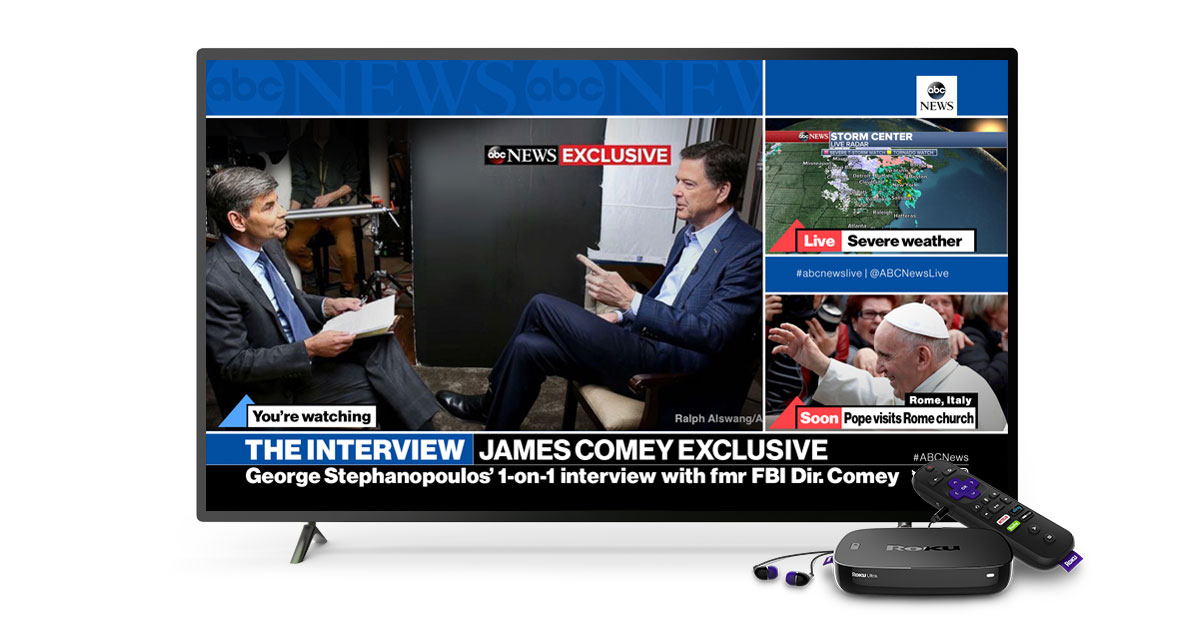
The smarter way to stay on top of the streaming and OTT industry. Sign up below.
You are now subscribed
Your newsletter sign-up was successful
Two members of California’s Congressional delegation, Anna Eshoo and Jerry McNerney, recently wrote to a number of cable and streaming providers, expressing concern about their role in allowing certain news outlets to spread misinformation.

From an industry perspective, what’s notable about this is that the two Democratic lawmakers included streaming companies like Roku, Amazon, Hulu, Google and Apple in the mix along with Comcast, Charter, Dish, AT&T, Cox and Altice. It’s a sign that TV news has already begun to shift from cable to streaming and all that entails.
Sports and news are frequently cited as the two main reasons why viewers continue to subscribe to pay TV, whether that’s from traditional cable providers or from vMVPDs. But with nine multibillion dollar subscription streaming services (“Flixes”) up and running, viewers are likely to be abandoning traditional pay TV in much greater numbers in the years to come.
That leaves the news services in something of a pickle.
On the one hand, all of the national TV news services are owned by companies that also own streaming services and can easily be stood up as a channel on those services.
To wit, Hulu, which is owned by Disney, now carries a feed from ABC News, and Comcast’s Peacock has a range of news offerings ranging from Sky (the UK telecom Comcast owns) to NBC News to MSNBC.
ViacomCBS will include its 24-hour CBSN service on Paramount Plus; Fox News has a stream on Fox-owned ad-supported streaming service Tubi; and CNN technically has a home on HBO Max as they are both owned by WarnerMedia/AT&T.
The smarter way to stay on top of the streaming and OTT industry. Sign up below.
While hosting a live news channel on a largely entertainment-based streaming service is certainly a viable option, it offers a less than ideal solution for consumers who want access to more than a single news outlet along with the ability to watch their local news.
Enter the free, add-supported services (aka FASTs), a group that includes Roku Channel, Pluto TV, Tubi and Amazon’s IMDb TV, just to name a few.
While most FASTs are still in the process of pulling together their news programming experiences, Fox-owned Tubi provides an example of what’s to come. Their news offering contains streams from a wide range of providers, including Fox, Bloomberg TV, NBC, CBC, Cheddar, fubo Sports Network and the Black News Channel.
In addition, Tubi features local news feeds. While not all of these feeds are live, they do offer a vision of what streaming news might look like on the FASTs: 24 hour streams and/or clips from business, sports, weather and international news services, along with a feed from the national news service that’s owned by the company that owns the FAST.
The question is, does it make sense for national news services to distribute their live streams across all the free, ad-supported streaming services, or just the one their parent company owns?
Subscription or Ad-Supported, Standalone or a Feature?
These are the questions that TV news services will need to address in the years to come and they need not be an “either/or” decision.
CNN could, for instance, launch an app with a monthly subscription fee, yet still run ads on that app, a hybrid model that is becoming quite common.
Similarly, the network could give viewers the choice of a standalone CNN app for $5/month for those who don’t want to watch it via the HBO Max app, which runs $15/month.
ViacomCBS appears to be taking a variation on this route, maintaining a standalone (but free) CBSN app that has national and local coverage, while also including CBSN on both the ad-free and ad-supported versions of its new Paramount Plus service.
The advantage of maintaining a subscription app is that it gives the news organization some protection from advertiser demands and opens up a second revenue stream. The downside is that the number of people willing to pay for a subscription to a single cable news service is unknown. People willingly pay to subscribe to newspapers like the New York Times and Wall Street Journal, but cable news has traditionally been part of a much larger bundle. And when there is an extra fee for cable news, it’s never for just one service, but rather, three or more.
It’s tempting to use the Fox Nation app from Fox News--the only subscription app from a national cable news provider to date-- as an example of why consumers won’t pay for a standalone news service. Parks Associates estimates that Fox Nation only had between 200,00 and 300,000 subscribers last year. But it’s not a very good example, as the app is intended to be more of a companion for viewers who watch Fox News on cable, versus a standalone replacement for those who no longer have cable.
So the jury is still out, though my suspicion is that viewers don’t find the same value in cable news services as they do in their local newspaper. And if faced with a choice between watching ABC News as part of their existing subscription to Hulu and paying $5/month for a subscription to MSNBC, most will choose the former.
This is not so much an argument against standalone news apps, as it is an argument that those networks must reinvent themselves for the streaming ecosystem, figuring out ways to provide the sort of value that consumers are in fact willing to pay a monthly subscription fee for.
I also suspect that some form of bundling would be useful, where say Roku or Verizon or Vizio offered viewers a package of three or four news apps for $10/month. The theory on this is that consumers are used to having access to multiple TV news options, dating back to the early days of broadcast TV and the evening news, and they don’t necessarily want to be limited to just one option. (That said, the increasingly partisan tone of cable news networks may eliminate any desire to have more than one.)
It will be very interesting to see how the news industry reinvents itself for streaming—whether the shifts lead to consolidation, the growth of more niche options, or both. Just as interesting will be how the industry polices itself against misinformation and fake news from niche streaming services in the years ahead.
Alan Wolk is the co-founder and lead analyst for media consultancy TV[R]EV

